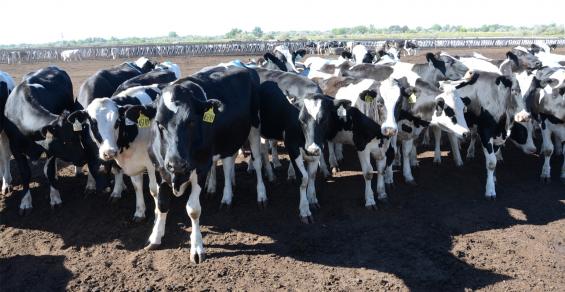WasteFuel Agriculture sees value in animal waste for a range of markets and wants to help farmers take part.
There’s no doubt about it: Livestock operations create waste that must be dealt with in some way. Animal manure is a valuable fertilizer, but it also sheds methane in the process, and that’s considered a greenhouse gas. But a California-based startup sees value in that methane and wants to help farmers tap into that business.
WasteFuel Agriculture was introduced to farmers at the recent World Ag Expo, and before the announcement, Farm Progress connected with Trevor Neilson, co-founder, chairman and CEO of the business. “We’re not a tech company; we use other people’s technology,” he explains. “We don’t want to be in the business of inventing something. We’re tech-flexible.”
The business is focusing on ways to create a waste-to-energy infrastructure where farmers can tap new business opportunities. Being tech-flexible means that a farmer might be involved in turning the methane from a digester into renewable natural gas — as some dairies have started doing — while others may turn that methane into methanol, which is a new opportunity of interest for marine fuel as shippers seek to reduce their carbon footprint.
Using that methane for either of those two products helps take it out of the air and put it to good use. Being a natural source, and renewable, means there is a climate-smart story to tell.
Neilson notes that when he first started looking at agriculture for its business, he thought he would find many competitors. “The space is not as crowded as I thought it was,” he observes. “So most of the folks we talk with really see it as an exciting option.”
It’s not a simple task to turn that waste to energy on the farm, but WasteFuel Agriculture is starting its “full-court press” to reach out to dairies first to begin discussions.
Investors interested
Creating a market for a relatively new market is made easier for WasteFuel, because it has investors that would be buyers of the end product. “There’s a kind of built-in process here,” Neilson notes.
He explains that global shipper Maersk has to buy 400,000 tons of green methanol for new ships it has ordered. “That’s for the first six ships — and Maersk intends to never buy another ship powered by fossil fuels, so they’re going to need as much methanol as they could get their hands on,” he says.
For the ag market, Neilson explains the process will start with an anaerobic digester at a dairy or other waste-producing facility. This avoids the problem of transporting manure to a processing facility. But Neilson says there are some stumbling blocks to overcome.
“Farmers don’t need their lives to be harder,” he says. “That’s probably the biggest limiting factor in our effort to reach out to them. Everyone is interested, but they’ve got their hands full.”
He adds, however, that this new energy business could be a valuable revenue stream for the farm, and WasteFuel would work with farmers to make the process easier.
California is a hot spot for this new business, in part because dairies are close to rail lines that can transport finished product — renewable natural gas or methanol — to ports where it can be exported or used. But he sees opportunity farther from that state as the business grows.
For farmers who have already invested in an anaerobic digester for their operations, moving to renewable natural gas or methanol is a “bolt-on” business. “It’s never easy, but it’s an upgrade to that digester, and it will be a big part of our business,” Neilson says. “It’s a lot easier than doing something from scratch.”
He adds that as WasteFuel Agriculture grows, he sees farmers working in cooperation to create economies of scale for processing. And he’s observed some interest in that approach.
Methanol or natural gas
That methane from a digester can become either renewable natural gas or methanol — which to choose? “It becomes a question of math,” Neilson says. “The low-carbon intensity of renewable natural gas makes prices attractive as opposed to natural gas.”
As for methanol, at this time California doesn’t recognize the fuel within its environmental revenue program. “It makes no sense at all. So a lot of people just look at the numbers associated with those environmental revenues for renewable natural gas and say, “Why not just focus on that?'” he says.
But Neilson sees a shift ahead, because it isn’t only Maersk that wants green methanol. “It’s pretty much every shipping company in the world. And there are a lot of other uses for methanol beyond just shipping, so we believe that’s going to continue to grow,” he adds.
The company has received investments from Maersk, NetJets, Prime Infrastructure and i(x) Net Zero. You can learn more at wastefuel.com and wastefuel.com/wf-agriculture.



